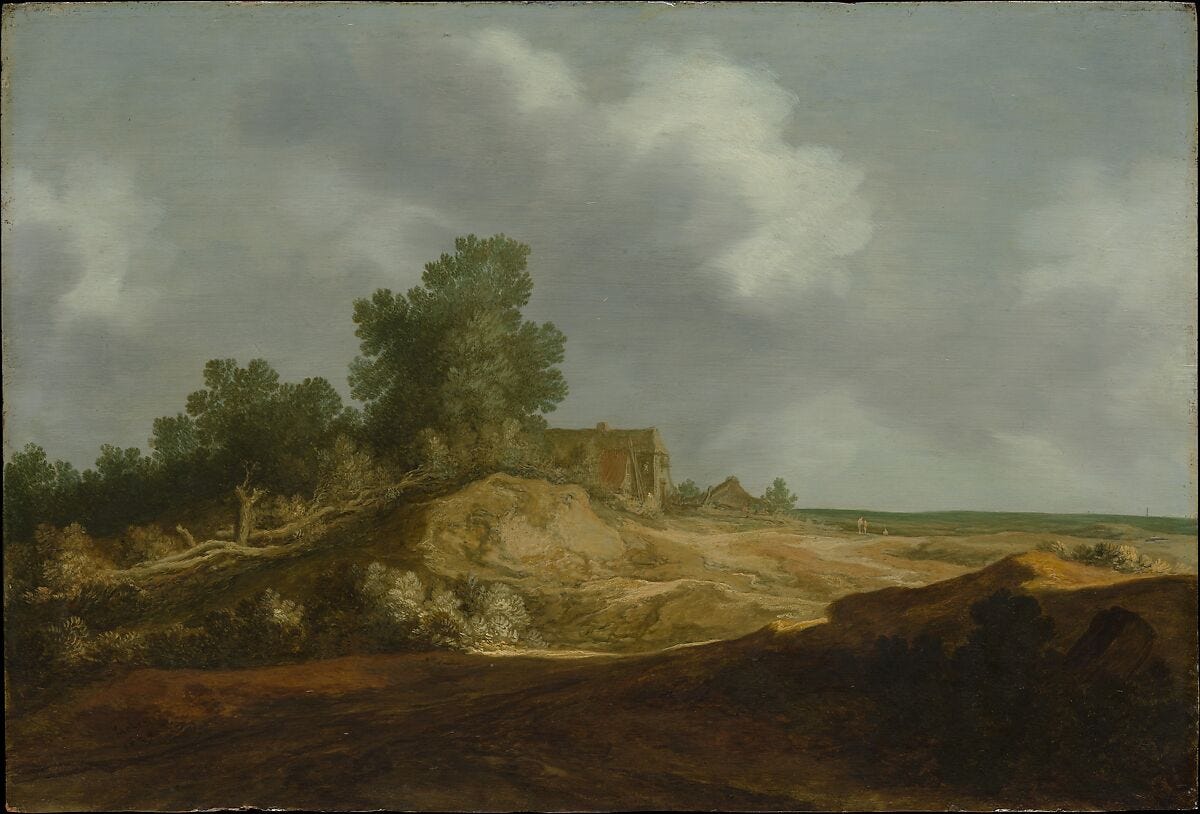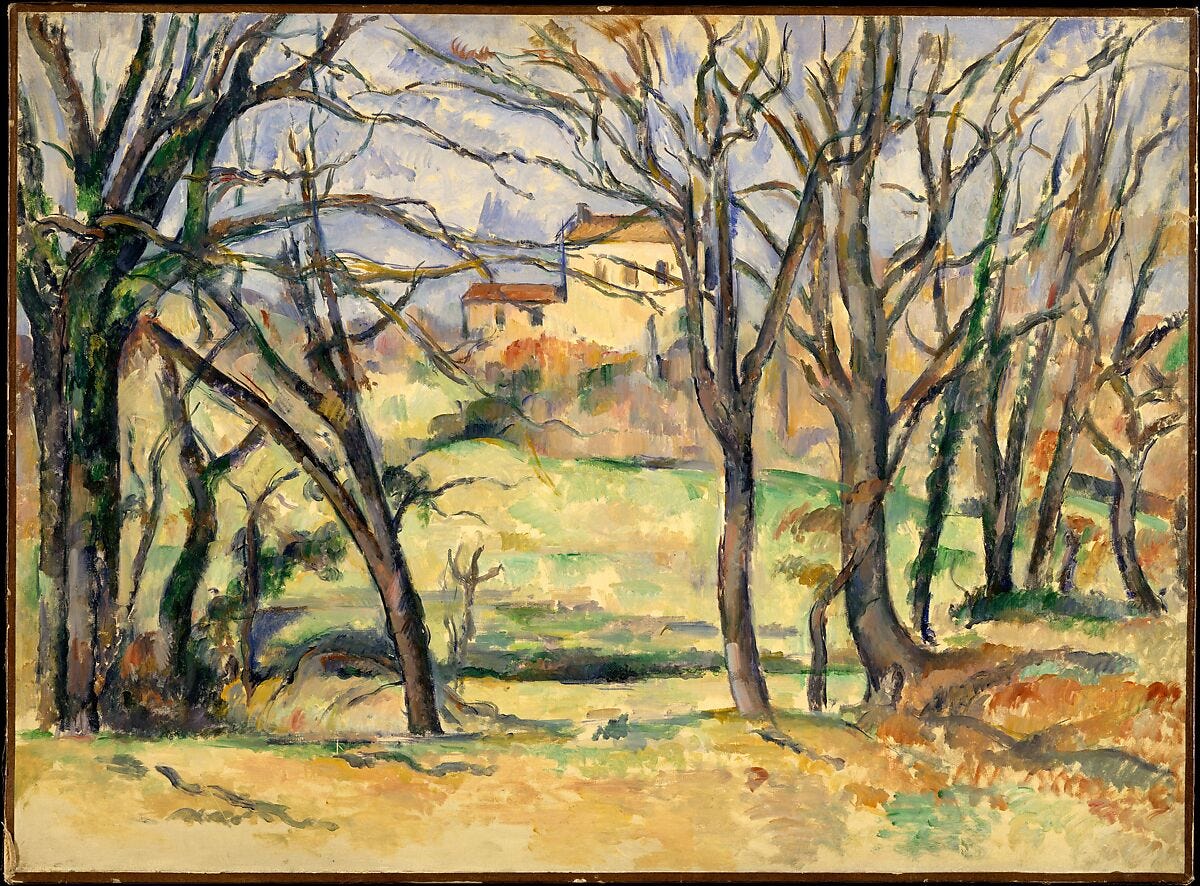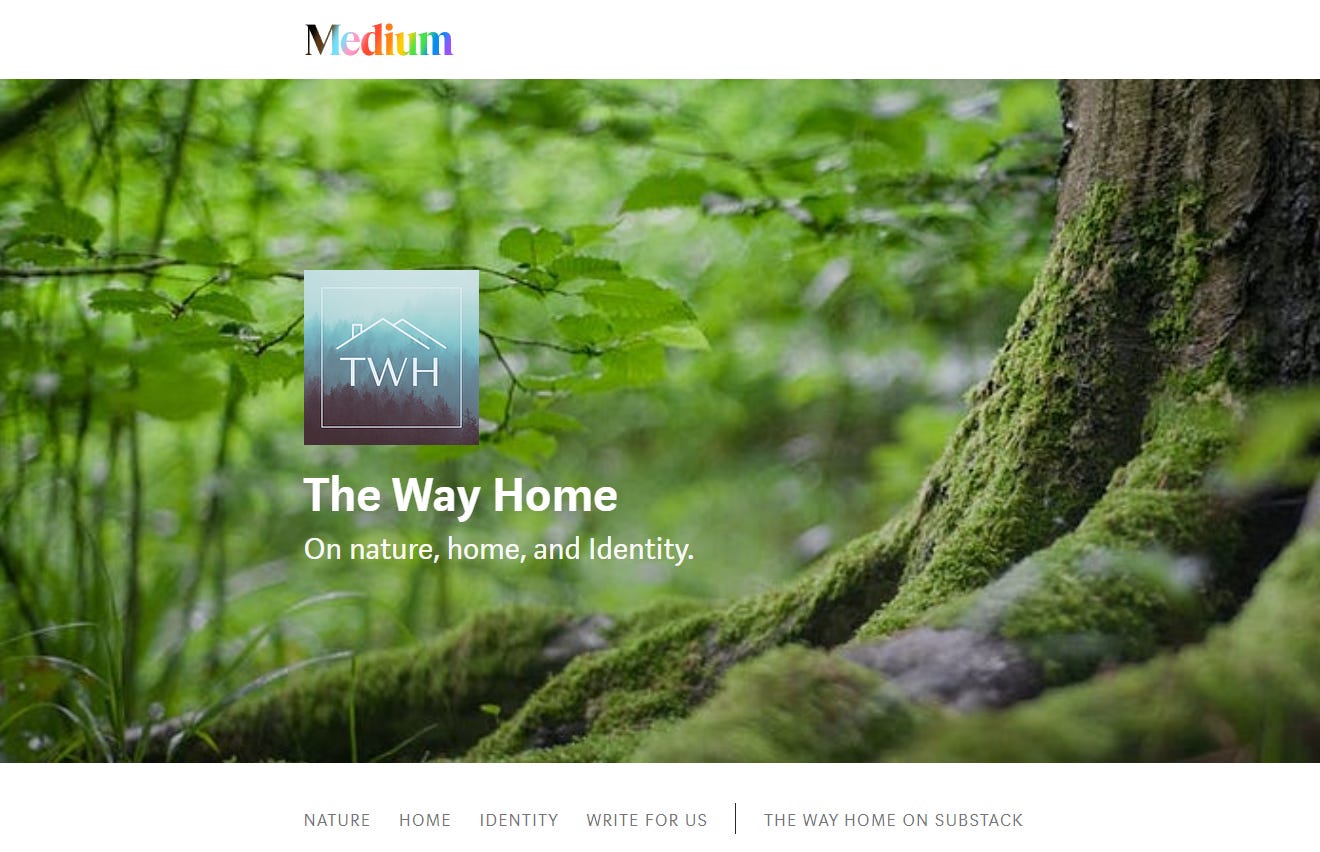There's no Nature Writing Without Environmental Awareness
Fundamentals of nature writing pt. 2
Hey there, I’m Gaia, and I write about nature, home, and identity. I also create resources for new nature writers! Subscribe for free to receive my open resources, or join The Way Home community to gain access to all my writings. Enjoy a mindful, ecocentric, and authentic virtual space, designed to bring balance to our chaotic and precarious times.
Nature Writing and Environmental Writing
Nature and environmental writing are different, but connected. Writing about nature without considering climate breakdown is rather delusional. We must consider environmental awareness as a fundamental part of nature writing.
Many new nature writers trained within the humanities find this approach rather overwhelming. As a result, we make the mistake of thinking that our experience of the beauty and wonders of nature is enough.
If you actually love nature, it isn’t.
The Importance of Environmental Awareness
That’s why I talk about awareness. Nature writing frequently results in a pseudo-mystical and self-indulgent reflection of natural phenomena.
No one cares about how you feel when looking at a tree.
Before you misunderstand me, let’s break this down. To have feelings about trees is, in my opinion, extremely important. I think about trees a lot, and if you do too, your feelings are hereby validated.
But, if you want to be a nature writer, your feelings shouldn't stop you from taking reality into account. Nature writing benefits from an educated and self-aware starting point.
The climate is breaking down. The natural world is going through unprecedented dramatic changes. Some of the things that made the previous generations of nature writers go “wow” are disappearing. Others already have. Because of us.
Writing about nature without considering this, would be tone-deaf.
Environmental awareness means considering reality even if you don’t entirely understand it
If I decide to write about pigs without considering the meat industry, what am I actually writing about? My idea of pigs? And if so, why?
Do I actually care about pigs, or do I simply like writing about my idea of them?
The Trap of Romanticism
The risk of romanticizing our current reality (which is cruel, grim, and violent) is an easy trap to fall into. Nostalgia is a wicked spirit. We all love to be comforted.
Can I still write about pigs sniffing truffles and eating acorns? Can I describe their best day ever? Of course! All I'm saying is that my writing would become much more impactful if I knew about the average day of a pig.
It takes courage to be a nature writer in 2024. It takes courage to write about nature when our species is killing it in its every form. I believe courage without self-awareness is just ignorance on steroids.
We, as nature writers, already knew this during the industrial revolution. Not considering this matter in 2024 smells like denial to me.
You can’t honour nature by writing about it if you do not consider the extreme pain and destruction we are causing. If you avoid considering this, you do not love nature. You love how the beauty of nature makes you feel.
If you decide to write about the things you love, you need to learn how to love them without hurting them. Anything else is just literary narcissism.
No Place for Self-Indulgence
If we are writing from a place of self-reflection because we love nature, we have to love her right. I understand she’s very pretty, but that’s not all she is. We have to acknowledge the hurt. We have to educate ourselves on how to respect her.
We all watched the Fish Love talk by Dr. Abraham Twerski on YouTube. But just in case you missed it:
We don’t love fish. We love fish for how it makes us feel.
There’s no place for self-indulgent nature writing in our times. That type of nature writing prolongs a collective state of environmental denial. Damaging. Deadly. Horrendously shallow and void.
Nature writing belongs to nonfiction, and to write nonfiction, you must be able to stomach reality.
A humble approach goes a long way
As I mentioned in my last post, I was trained within the humanities. There are still many things about the climate that I do not understand. Does that mean that I shouldn’t be writing? Absolutely not.
That simply means that each time I decide to write about nature, I approach any given topic with the curiosity and humble spirit of a novice. My feelings about it are not enough. If I want my gaze to matter, I must sharpen it and actually look at my subject.
Not because my feelings are not valid, but because my feelings for nature stem from a matrix of respect and care.
Without this, the feelings I’m expressing are not actually honouring nature. They are flexing my writing skills.
My highest purpose is to honour, heal, and protect nature. Therefore, the way I move as a writer and a person, must always take that as my ground zero.
Genuine Connection
Many people would resonate with my musing even without environmental awareness. We are taken by beautiful things, and nature writing can definitely be moving and full of wonder. That’s not the point.
I am not sharing nature writing resources so you can sell your self-indulgent writing. I am sharing nature writing resources to help you use your writing gifts for the greater good. I share what works for me.
I choose to write about nature by taking into account human impact. It’s painful. Guilt-triggering. Extremely difficult. I’m a human though, so I take responsibility. It wouldn't feel authentic to do otherwise.
There’s no nature writing without environmental awareness. The climate is breaking down. If we don’t implement environmental awareness into our creations, we’ll be left writing eulogies. For us. For our beloved earth. For all the guilt we’re taking with us to the grave.
When there will be no trees left, who will care I loved the sound of leaves in the wind? Who will read my musings when we’ll all be dust? When all of this is gone, there will be no need for nature writing, because only humans need literature.
Resources
Professors Tim Kendall and Fiona Mathews are interviewed in this awesome podcast episode from Trees a Crowd.
Environmental and Nature Writing by Sean Prentiss and Joe Wilkins.
Oh, By The Way!!
Are you passionate about nature writing? My Medium publication is looking for writers! Check it out here.
Read the guidelines here, or on the “Write for Us” tab on Medium. Becoming part of this project is super easy and beginner-friendly. Since we are just getting started, I’ll provide feedback for each submission to help you get accepted.
Thank you so much for reading,
All the best,
Gaia Kriscak







